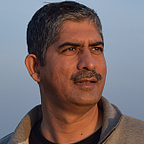The Relevance of Indian Knowledge Systems in Modern Psychology and Well-being
Summary Notes of the talk by Dr. Vinayachandra Banavathy
Indian Knowledge Systems (IKS) have much to offer in the fields of psychology and well-being. Dr. Vinayachandra Banavathy shares insights on the importance of IKS and its practical applications in today’s world.
Understanding IKS
• IKS is not just about historical content
• It includes knowledge, ways of knowing, and impact on personal life
• Limiting IKS to content alone is a mistake
• IKS should transform individuals, not just provide information
Why IKS Matters
• Helps build confidence in indigenous systems
• Makes knowledge more representative and democratic
• Offers alternative perspectives to dominant Western views
• Benefits not just India, but all formerly colonized nations
The Way Forward
• Move from indigenous to integrative knowledge systems
• Combine useful elements from different traditions
• Build confidence in indigenous systems while addressing biases in modern systems
• Encourage dialogue between different knowledge traditions
Well-being and Indian Psychology
- Comprehensive view of well-being:
• Physical, psychological, emotional, social, and spiritual aspects
• Optimal functioning and flourishing
• Finding meaning in life
2. Indian tradition’s unique contributions:
• Deep understanding of the mind
• Systematic practices for mental well-being
• Methods to find meaning in life
Five Key Areas Where Indian Psychology Can Contribute
1. Deeper philosophical foundations:
• Different perspective on consciousness and human nature
• Sees consciousness as fundamental, not an emergent property
• Changes understanding of normal and abnormal behavior
2. Methods of subjective inquiry:
• Offers tools for exploring inner experiences
• Provides alternatives to purely objective methods
• Encourages rigorous subjectivity
3. Theories of self and personality:
• More comprehensive models (e.g., Pancha Kosha)
• Accommodates insights from other psychological approaches
• Offers a wider range of understanding human nature
4. Specialized psychological theories:
• Concepts like rasa (aesthetic experience) and bhava (emotions)
• Deep examination of subtle aspects of human experience
• Adds meaning and depth to life
5. Applied psychology:
• Practical techniques like yoga and pranayama
• Well-established benefits for physical and mental health
• Applications in psychotherapy and developmental psychology
Benefits of Integrating IKS in Psychology
• More holistic understanding of human nature
• Broader range of tools for mental health and well-being
• Bridges gap between knowing and being
• Enhances overall life satisfaction and contentment
Challenges in Adopting IKS
• Overcoming biases against indigenous knowledge
• Integrating traditional and modern approaches
• Avoiding exaggerated claims about ancient wisdom
• Developing rigorous research methods for subjective experiences
Practical Steps for Individuals
• Explore yoga and meditation practices
• Learn about Indian concepts of mind and consciousness
• Try integrating IKS-based techniques with modern therapy
• Reflect on how IKS impacts personal well-being
The Future of IKS in Psychology
• Growing interest in yoga and mindfulness worldwide
• Potential for developing new therapeutic approaches
• Opportunities for cross-cultural psychological research
• Possibility of more holistic and inclusive mental health care
Conclusion
Indian Knowledge Systems offer valuable insights and practices for modern psychology and well-being. By integrating these approaches with contemporary science, we can develop more comprehensive and effective ways to understand the human mind and promote mental health. The future of psychology may lie in bridging ancient wisdom with modern research, creating a more inclusive and holistic approach to mental well-being.
